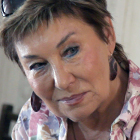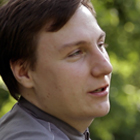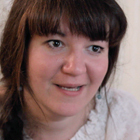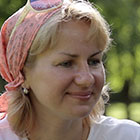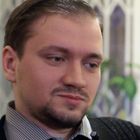Soldiers’ mothers of Saint-Petersburg
Defend the rights of servicemen and conscripts
When we were creating our organization, we understood that people knew little about their rights, enshrined in Russia’s Constitution, that the concept of ‘human dignity’ had almost disappeared, that no one had been working with the problems of common people, let alone those of conscripts. We clearly understood what a soldier in the Russian army was – a mere cog in the state machine, yet with an assault rifle. We felt how important hope, self-confidence and trust were for every person. At the beginning of our journey, we saw that people around us, as a rule, did not even know what it meant to feel free. It was obvious for us that the path towards freedom and the attainment of dignity was going through enlightenment.
Therefore, our organization’s mission is to enlighten people around us. Social work is all about showing, explaining, proving things to people, it is about convincing them. Having equipped ourselves with the Universal Declaration of Human Rights and Russia’s Constitution, we started to demolish this dispossession belt between citizens and their rights. It was necessary to make sure that people clearly understood that, having a good knowledge of rights, laws, and situations at hand, they would be able to take responsibility and protect themselves from abuse.
Our office kitchen reminds one of the times of soviet dissidents. There we discuss new projects ideas, the details of individual cases, and topical news.
For several months we have been working on and implementing a new branding for our NGO. We have launched a new website and a mobile app. We are trying to actively use IT-innovations to reach out to the youth.
There were a lot of concerns regarding the so-called ‘foreign agents law’. We discussed how potentially unlimited the interpretation of ‘political activity’ could be, as well as the law’s vague formulations. We were one of the first NGOs included into the ‘foreign agents list’ and the first one that was officially excluded from it. As long as this law is in force, the whole of the human rights community is endangered. It is like a sword of Damocles. However, the state will not be able to destroy the community by means of this law. It may fray our nerves, even stigmatize us, but the work is going on, because our fellow citizens need human rights and human rights defenders.
Twice a week NGO employees hold online Skype-consultations with people from outside Saint-Petersburg. One can arrange such a consultation through our website and receive further assistance as well. As a rule, such cooperation is not limited to just one consultation – oftentimes there is a need to provide comprehensive long-term assistance related to the protection and vindication of rights of a given applicant.
The most valuable thing about such work is that, in the course of time, the applicant, having gained insight into the matter, begins to protect his or her rights independently, as well as to help others do the same, i.e. the applicant becomes a ‘local’ human rights defender. When we receive applications from the same region, we try to connect people with each other so they could act in concert and thereby enforce their position.
As for the geography of incoming applications, it is extremely wide: Moscow, Novosibirsk, Krasnoyarsk Region, Rostov-on-Don, Murmansk and its Region, Voronezh, Sverdlovsk Region, Lipetsk, Tyumen, Bryansk, Pskov, the Republic of Bashkortostan, Kalmykia, Mariy-El, Krasnodar, Ryazan, Tatarstan, and Orenburg. Our employees conduct around 200 Skype-consultations per year.
In addition to our daily routine, we also meet our colleagues from Russia and from abroad. Those meetings help us better understand some problematic issues and exchange experience. They provide a unique opportunity to immerse into the discourse and to look at social problems from different angles.
Trips to international conferences and forums shape an in-depth, contextualized understanding of the causes and consequences of social processes in different countries. All this creates a more realistic world outlook.
NGO’s everyday work often plunges us into dull routine, and our view on problems gets clouded. Sometimes it is necessary to abstract from daily tasks and to look at one’s work from the outside. Through communication in professional human rights environment we assemble and promote best practices that help resolve many problematic issues.
We organize free seminars for those citizens, who have exercised their right to refuse to go through military service. At those seminars we are telling them what alternative civilian service is and how they can arrange it.
Day by day the number of people, who have decided to choose alternative civilian service on both religious and secular grounds, is growing: only in Saint-Petersburg dozens of young men in the recent year have refused to go through their military service due to conscience convictions. Among those convictions, there are beliefs in the value of freedom, family and human dignity, as well as pacifism based on religious creeds and on the interpretation of religious teachings and scriptures.
The protagonist of this video, Pavel, stood out from the very beginning because of his openness, pro-active attitude, and his willingness to help promoting the cause of the alternative civilian service. He performed his alternative service in a hospital situated close to his home and proved himself to be a good worker. At present, Pavel continues working in the same hospital with a regular employment contract.
